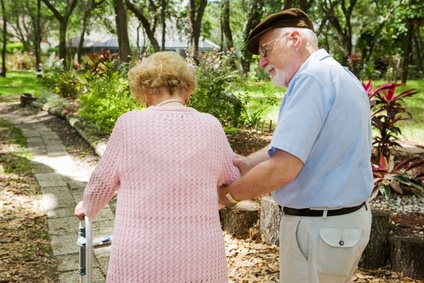One of the most difficult things a person can face is coming to realize their mother, father, or other elderly relative is no longer able to safely care for themselves in their own home. Leaving your elderly loved one in the care of strangers isn’t an easy task. Choosing the right facility for your loved one begins with understanding their needs and what the facility provides as far as care and safety. Stay present in the life of your parent or loved one, and make sure that they’re being treated with the respect they deserve.
Because the transition of placing a loved one into a nursing home can be emotionally upsetting, the logistics can often be overlooked. It’s important to consider what the application process might be like, what happens if you’re added to a waitlist, insurance, and what kind of deposits you might be facing.
The Application & Waitlist Process
The application process itself is relatively straightforward, so try not to feel overwhelmed. Nursing homes are required to provide applications to anyone who asks for them. Within two days of requesting an application, the nursing home must send you the application and dated receipt. When you receive this in the mail, you or your loved one must fill out the application and return it to the facility. If your loved one’s application has been correctly completed, they will then be placed on the waiting list to be considered for a bed.
The general rule is that nursing homes work off of a first-come, first-served basis, depending on the submission date of your completed application. There are exceptions, however. In some cases, Medicaid recipients can only occupy a certain percentage of beds. Your parent or relative may be admitted ahead of others if their spouse is already a patient in the home, if they require short-term rehabilitation or if their current facility is closing its doors.
While it is nearly impossible to tell when a bed will be offered to your loved one in the home, the facility is required to tell you of your family member’s place on the waiting list when asked.
Insurance & Deposits
While Medicare generally doesn’t cover long-term stays in a nursing home, if your loved one qualifies for Medicaid, they may be able to get help from them paying for these costs. In some cases, your family member might not be eligible for Medicaid until you’ve spent a certain amount of personal resources on medical care. In this situation, you may have to pay out-of-pocket until your parent or relative qualifies. If you’re aware that the stay may be long-term, look into long-term care insurance to find out what the different policies cover. Whatever you opt for here, don’t get rid of health care coverage, as you may need that for doctors, hospital care or medical supplies.
If your loved one’s stay is coverable or partially coverable by Medicare or Medicaid, no deposit or advance payment may be required. If you’re hoping for special services like private rooms or private nurses, a deposit may be required in that situation.
This transition can be a difficult one to wrap your head around. In order to make it as stress-free as possible, Salvi, Schostok & Pritchard have developed a guide to finding the right nursing home for your elderly loved one. By doing the proper research, you will be sure to find the perfect nursing home for your mother, father, or other loved one.
